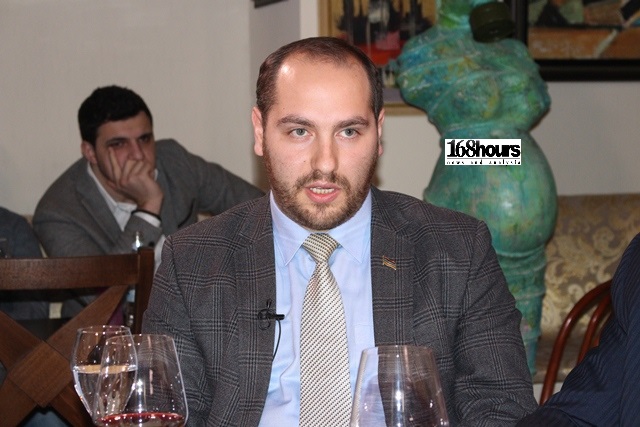Armenia’s independence without a strategic vision

In early April, the first parliamentary elections will be held in Armenia after amending the Constitution on the country’s transition to the parliamentary form of government. In this regard, various parties are actively promoting their political and economic programs to the public. In general, the Armenian public treats with a large grain of salt both to the current authorities and the opposition. This distrust is explained by lack of internal progress and a lot of foreign policy failures. Over the past few years, some important events took place in Armenia (“Electric Yerevan”, “the four-day war”, the police station seizure), which became indicators of a deep political crisis and huge distance between the elite and the people. Specific Armenian problems are well known: the intense immigration, unemployment, high levels of corruption, impossibly high tariffs and etc. The reasons of foreign policy failures are also quite transparent: lack of political will and consistency, low efficiency of the relevant state institutions and etc. All these problems are largely the results of a complete absence of any coherent state development strategy and national vision to address the priorities.
The problem of “dependence and independence”. Over the last three hundred years of history of international relations, there has been struggle between the major powers to extend their spheres of influence in different parts of the world. Small nations and peoples that could not afford the luxury of independence were the main targets in the framework of that competition. Therefore, they were always in the orbit of influence of empires and greater nations. History has shown that after becoming parts of the interests and ambitions of a large state, small nations face the threat of total annihilation. The consequences of British colonization in Ireland led to “The Great Famine”, which killed more than one million people. Contradictions in Europe resulted in two World wars, during which horrible crimes were committed: the Genocide of the Armenian people by the Ottoman Empire and Turkey and the Holocaust of the European Jewry by Nazi Germany.
The theory of political realism says that a state can be independent only when its opinion is considered by the leading countries of the world. After the two World wars, the process of decolonization and collapse of the USSR, a lot of new states appeared, which were trying to find their place within the system of international relations in different ways. Such countries as Lithuania, Latvia and Estonia joined the European Union and the NATO military-political bloc, receiving the patronage of the United States. The leaders of these nations took reasonable decisions to give up their sovereignty to the supranational level. They were well aware of the lack of resources to form their own political tools that would ensure the balance between the different centers of power without a necessity to make any civilizational and military-political choices.
Other former Soviet republics – Tajikistan, Kyrgyzstan and Belarus – embarked on the political and economic integration with Russia. Anyway, a small country without resources is always forced to make a choice. Building a long-term development strategy, the leaders of such countries pose just one fundamental question to the whole nation: “Who we are with?”. The nations that were able to learn the lessons of their own history and examine the world’s political trends and tendencies thoroughly, recognized the need to strengthen their identity and lobby their own interests by various means and methods.
“Transnational political nations as a resource for the small peoples”. Many experts have often mistakenly equated such concepts as diaspora and transnational political nation. There are hundreds of views in the scientific world on the definition of the term “diaspora” and on how it differs from the “community” and “lobby”. In general, diaspora is a group of people united by common national, religious or cultural traditions. As it follows from this definition, diaspora does not have to bring together the representatives of a particular ethnic group. Nowadays, there are diasporas of religious and geographical types that are very active. For example, the Poles, Italians and Cubans can simultaneously be part of the Catholic diaspora, while the Bulgarians, Greeks and Romanians may be included both in the Orthodox diaspora and in the Balkan diaspora.
Community unites people of the same ethnic origin, regardless of their religion and place of arrival in the host country. Thus, an American-French Protestant who grew up in Texas and a French Catholic who moved from Lyon are an integral part of the French community in the USA. In turn, transnational political nation (TPN) brings together the most active representatives of a specific ethnic group-community. A TPN is always closely connected with the country of origin and is primarily interested in defense of its interests.
Today, there are some states without natural resources and favorable geographical configuration. Nevertheless, their interests are taken into account by the great powers. The leaders of these countries have realized that one can build a strong nation without oil, gas, gold and other classical natural resources and wealth. The Irish and Israelis were the first to understand that their strategic wealth and the main resource is a person. For decades, countries like Ireland and Israel have actively collected the most powerful potential of their multi-million Diaspora around the world, forming a unified transnational political nation.
Creating a global network of lobbying structures, Ireland and Israel received not only an effective instrument of influence but also their places of honor in the international system. Many countries with a diaspora resource try to learn from past experience to form their own tools of influence. In this area, the most successful country is Poland. It is necessary to indicate that a properly structured strategy helps not only to retain the independence, but also to act as a lobbyist for entire countries and peoples. For example, Ireland actively promotes the interests of many Catholic countries in America, Israel supports the pro-Turkish and pro-Azerbaijani initiatives while Poland has recently become a major lobbyist for the interests of Ukraine and the Baltic countries. Thus, the leaders of the states of this type should ask the question “who is with us?” instead of the question “who we are with?”.
Armenia missed the chance. Since the very moment of getting the independence, Armenia received a historic opportunity to build a transnational political nation. From the period of 1989-2003, the Armenian communities worldwide had high hopes connected with their homeland. Moreover, Armenians all over the world were inspired by the victory in the national liberation war in Artsakh as well as by the unprecedented success of lobbying organizations around the world for the sake of international support for Armenia. It is noteworthy that the Armenian elite of that period conducted independent policy, asking the question “who is with us?”. It took important decisions and got answers from different countries all over the world. The problem was that the question was raised unconsciously: it was just the result of the most powerful mobilization of the Armenian world, which many great powers counted on. That is the reason why we could not keep that potential and direct it to formation of the transnational political nation.
In this context, the complementary policy of Robert Kocharian – the second President of Armenia – was doomed to failure. Yerevan mistakenly believed that cooperation with the traditional Diaspora forces would help to balance the foreign policy of Armenia. However, since that time, Armenia has had no idea what the Diaspora is. Can we say that certain organizations represent the interests of a wider community? It is doubtful. As a rule, these organizations have always solved some specific tasks that do not bother the majority of the Diaspora. Was it sensible to rely on the narrow elites that could not actually mobilize Diaspora’s human capital? No, it was not. It was Armenia that had to form the necessary strategy to create the transnational political nation and provide guidance that would contribute to formation of the global Armenian aristocracy.
Not surprisingly, after the failure of the complementary policy, the new authorities were forced to make a choice. Armenia had no opportunity to maneuver because of subjective and objective reasons: safety and monopolization of political influence by one power, respectively. Today, the country is in a difficult situation and any miscalculation can lead to unpredictable consequences. The first thing that must be done is to understand what we want and where we plan to be in the international system. Do we have a strategic vision on how to solve, for example, the Turkish or Azerbaijani issues? Do we realize what catastrophic consequences such a flow of migration will have in the nearest future? What is the Diaspora that we want to see and do we need it at all? Finally, do we know where our independence begins and where it ends? Should we have independence and do we need it? Citizens of Armenia, the political elite of the country, the aristocracy in the Diaspora, and every Armenian person living abroad have to understand that our present and future depend on the answers to these questions and on the common strategic vision.
Areg Galstyan
PhD, regular contributor to Forbes, The National Interest, The Hill and the American Thinker

























